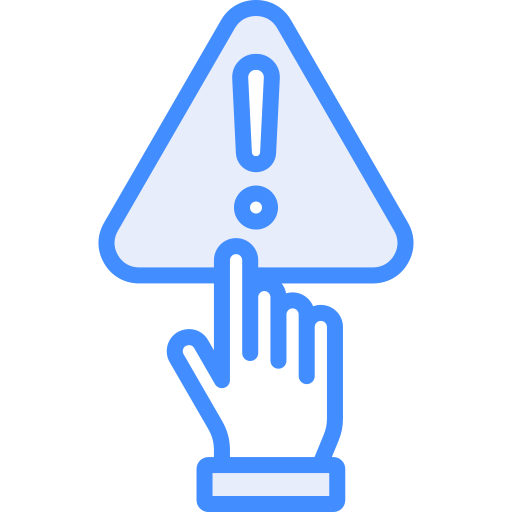Payday Lenders in Illinois
Payday Loan Laws
While they are legal in Illinois, the state imposes stringent regulations on payday loans to safeguard consumers from exploitative lending practices. Lenders must acquire a state license and abide by a myriad of guidelines, including limitations on borrowing amounts and interest rates. Furthermore, lenders are obligated to furnish borrowers with transparent and unambiguous details regarding the loan’s conditions, such as the total cost of borrowing, and any additional charges that might incur. The objective of these regulations is to avert consumers from getting caught in a cycle of debt and to ensure that payday lenders function in an equitable and transparent manner.
The State of Illinois has several pieces of legislation that govern payday loans:
- 815 ILCS 122: Limits the number of payday loans a borrower can have at one time, prohibits rollovers, and establishes the terms for a cooling-off period.
- SB 1792: Limited APR on payday loans to 36%

Loan Terms and Conditions
Maximum loan amount: $1000 or 25% or monthly income (whichever is less)
Maximum Interest Rate: 436%
Minimum loan term: 13 days
Maximum loan term: 120 days
Number of rollovers allowed: none
Finance charges: $1 verification fee
Legal action: 10 Years
Certified Payday Lenders in Illinois
| Company Name | Company score | License Status |
| AmeriCash Holding LLC | 7.6 | Valid |
| CNG Financial Corporation | 7.2 | Valid |
| CURO Intermediate Holdings | 6.5 | Valid |
| ENOVA International, Inc | 6.1 | Valid |
| CHECK INTO CASH INC | 5.8 | Valid |
| Populus Financial Group, Inc. | 5.1 | Valid |
History of Illinois Payday Loans
How to file a complaint
- ADDRESS
- 555 West Monroe Street, 5th Floor, Chicago, IL 60661
- 888-473-4858
- Website
Illinois Payday Loans Debt Relief
How to Get out of Payday Loan Debt?
Types of Quick Loans in Illinois
Alternatives to Payday Loans in Illinois
Personal Loans
Personal loans are a popular type of unsecured loan that is available in Illinois. Borrowers use these loans for various purposes, such as home improvements, debt consolidation, or unexpected expenses they might encounter. Personal loans come with fixed interest rates and set monthly payments, making them easier to budget than other types of loans. Borrowers with excellent credit can typically access lower interest rates and more favorable repayment terms from lenders. In comparison, those with poor credit may face higher rates and stringent eligibility requirements from creditors.
Bridge Loans
The name of a Bridge Loan speaks for itself. It is a short-term borrowing solution designed to bridge the gap between selling your current home and purchasing a new one. A Bridge Loan allows you to leverage the equity accumulated in your existing home to finance a down payment or mortgage on your new property. The monthly payments consist only of interest, with a shorter term and fixed interest rates, until your current home is sold and the Bridge Loan is repaid in full. Compared to conventional home loans, Bridge Loans typically have a quicker application, approval, and funding process, making them an attractive option for those who need immediate funds to secure their new home.
Home Equity Loans
Home equity loans give homeowners an opportunity to borrow money based on the equity they have built in their homes. In Illinois, home equity loans are regulated under the Homeowner's Equity Protection Act (HOEPA). They are flexible and can be used for many different purposes, such as paying for home renovations, consolidating debt, or making big purchases. Home equity loans usually carry lower interest rates since they are secured by the home. Borrowers need to realize, though, that taking out money against the equity in their home puts it at risk, and failure to repay the loan could lead to foreclosure proceedings being taken against it. It is crucial to approach home equity loans with caution, as they can come with both benefits and risks.
Bad Credit Loans in Illinois
Bad credit loans are a type of loan that is available to borrowers in Illinois who have poor credit or limited credit history. These often have higher interest rates and more fees than traditional loans and could require collateral or a co-signer to qualify. Bad credit loans can be used for debt consolidation, home repairs, or unexpected expenses.
Illinois Small Business Loans
Small business loan options in Illinois:
- SBA loans: This federal program provides loans to small businesses through banks and other approved lenders.
- Community Advantage Loans: These SBA loans are designed for small businesses located in underserved communities.
- Microloans: These small loans, typically less than $50,000, are offered by non-profit organizations and community lenders.
- Traditional Bank Loans: Small businesses can also apply for traditional bank loans, although they often require collateral and a strong credit history.
- Business Lines of Credit: This type of loan provides businesses with a flexible credit line to draw from as needed.
VA loans in Illinois
VA loans are a type of home loan available to veterans, active-duty military members, and their spouses. In Illinois, VA loans are backed by the Department of Veterans Affairs and offered by various lenders. VA loans provide several benefits, including no down payment requirements, no private mortgage insurance (PMI), and competitive interest rates. Additionally, VA loans allow borrowers to finance up to 100% of the home's value, making homeownership more accessible for those who have served their country. To qualify for a VA loan in Illinois, borrowers must meet certain eligibility requirements, such as having a valid Certificate of Eligibility and meeting minimum credit score and income standards. Overall, VA loans can be a great option for eligible veterans and military members looking to purchase a home in Illinois.
Illinois Student Loans
Many options are available to Illinois students to help finance their college education. These options include:
-
Federal Student Loans: These loans are provided by the government and typically have lower interest rates and flexible repayment options.
- Illinois Student Assistance Commission (ISAC) Loans: Offered to Illinois residents attending college in-state and can provide additional financial assistance.postsecondary institutions in the state, based on financial need and other factors.
- Illinois Veteran Grant (IVG): This program provides tuition and fee exemptions for eligible Illinois veterans attending Illinois state-supported universities and community colleges.
- Golden Apple Scholars of Illinois: This program provides scholarships and loan forgiveness for students pursuing careers in teaching in Illinois schools.
- Private Student Loans: Offered by banks and other lenders, these loans can be used to cover educational expenses not covered by federal loans.
Illinois Income Information
United States Census Bureau. “Poverty in the United States: 2021.” Accessed on April 20, 2023.
United States Census Bureau. U.S. Census Bureau QuickFacts: Illinois. Accessed on April 20, 2023.
Illinois Payday Lender Complaints
| Company Name | Count |
| AmeriCash Holding LLC | 24 |
| CNG Financial Corporation | 16 |
| CURO Intermediate Holdings | 10 |
| ENOVA International, Inc | 5 |
| CHECK INTO CASH INC | 5 |
| Populus Financial Group, Inc. (F/K/A Ace Cash Express) | 3 |
| Total Complaints | 235 |
Consumer Financial Protection Bureau. Consumer Complaint Database. Accessed on April 20, 2023.
Most Common Issues
| Complaint type | Count |
| Struggling to pay loan | 64 |
| Unexpected fees or interest | 56 |
| Can’t contact lender | 19 |
| Can’t stop withdrawals from bank account | 17 |
| Loan payment wasn’t credited | 16 |
What are the main reasons residents of Illinois apply for payday cash advance online or offline
Payday loans are typically used for nonnegotiable everyday expenses like your rent, utilities, and groceries. Per data reported by Pewtrust, the percentage of reasons described below
| Reason | Share |
| Regular Expenses (Utilities, car payment) | 53% |
| Unexpected emergency/expense | 16% |
| Rent/Mortgage | 10% |
| Something Special | 8% |
| Other | 5% |
| Did not answer | 2% |
Payday Lenders by City
- Chicago
- Aurora
- Joliet
- Naperville
- Rockford
- Springfield
- Elgin
- Peoria
- Waukegan
- Champaign
- Cicero
- Evanston
- Bloomington
- Schaumburg
- Arlington Heights
- Bolingbrook
- Decatur
- Palatine
- Skokie
- Des Plaines
- Orland Park
- Oak Lawn
- Berwyn
- Mount Prospect
- Tinley Park
- Oak Park
- Wheaton
- Normal
- Hoffman Estates
- Downers Grove



